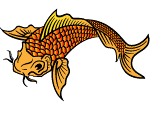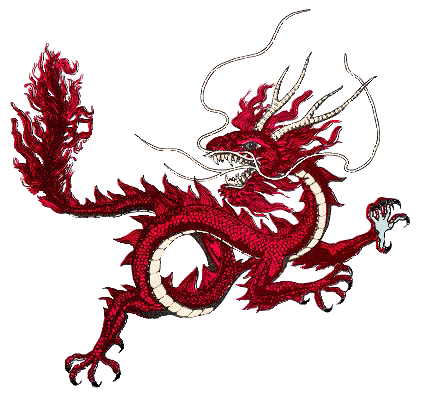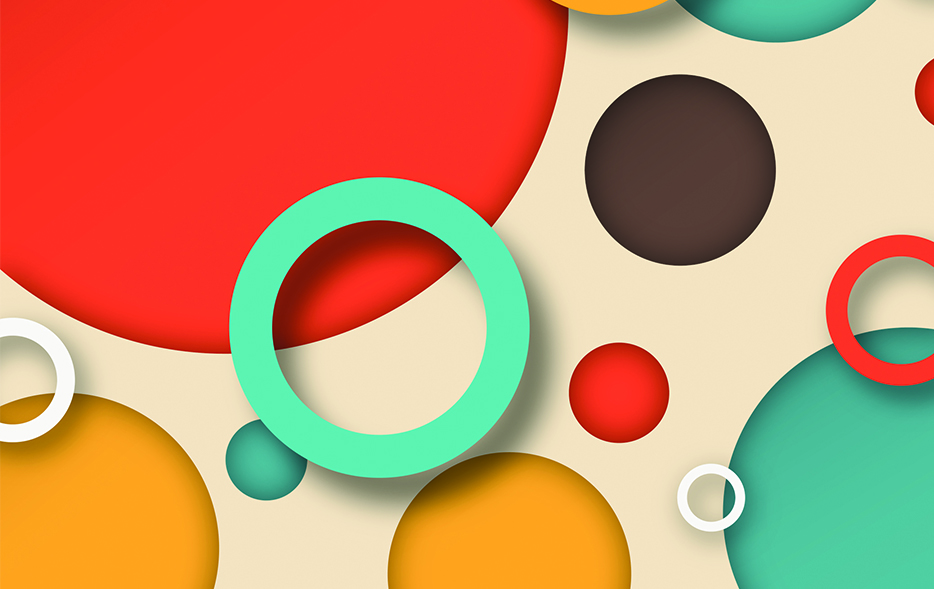The Korean Dream World
Everyone dreams, and everyone dreams often – several times a night. Most of our dreams, however, are not remembered upon waking. But those that are remembered are often subject to Korean interpretation, depending on the content of the dream. Stephen Redeker dealt with Korean dreams and their interpretation in his earlier contribution to the Gwangju News (May 2013). That article has been resurrected and revitalized here for your reading enjoyment. — Ed.
How important was that dream you had last night? In Western culture, dreams are viewed more as a novelty – an interesting (or embarrassing) topic to bring up among friends. However, in Korea, dreams can be much more meaningful than that. In this country, dreams are seen as omens. Similar to Chinese culture, dreams in Korea can be interpreted to symbolize good or bad fortune and even foretell the future of unborn babies.
Animal Dreams
Let’s start with the good. Pigs are a symbol of wealth in Korea. That is why you will find plastic “piggy” banks being sold in so many stores. When someone dreams of a pig, this can mean money is coming their way – even more so if there are many pigs in the pig dream (doeji-kkeum, 되지꿈), or if the pigs interact with the dreaming person.

True Tale: One expat living in Gwangju had a dream of many little pigs nibbling at his toes. The next morning, he related the dream to his Korean wife, who immediately suggested that he buy a lottery ticket for good luck. (Buying lottery tickets after having a pig dream was common practice at the time.) After thinking about the lottery ticket suggestion, several days later, he bought a couple of tickets when he came upon a streetside lottery ticket kiosk. However, before the lottery winners were announced, this expectant expat slipped off the sidewalk, hit his head on the pavement, was rushed to the emergency room, had more than a dozen stitches put in his forehead, and took weeks to heal. He never bought a lottery ticket again. His pig dream seemed to have been misinterpreted: Although there were many piglets in the dream and they were interacting with the dreamer, it was not a pleasant interaction. The biting was painful. To bring good fortune, the pig dream apparently needs to be a pleasant dream.
Some other lucky animals include bears, tigers, carp, phoenixes, and even snakes. A dream of a dragon is considered super lucky, especially if it involves flying high in the sky. A dream like this symbolizes huge success in the dreamer’s life. When someone dreams of themselves flying, it is also a dream suggesting future success. A dream in which one is falling is just the opposite. A dream about cats or dogs may be called a “dog dream” (gaekkeum, 개꿈), a useless dream holding no particular predictive powers.

Nature Dreams
Nature plays a part in fortunate dreams as well. You might think that a dream of a blazing inferno has a negative connotation. The reverse may actually be true. The Korean fire dream can be interpreted as meaning that your burdens and troubles in life are burning away so that you can start afresh. Hopefully, in your dream you do not put out the fire. If this happens, the sight of ashes could mean that the problems will return. Other good-luck dreams regarding nature include hiking in the mountains, swimming in the sea, and seeing clear skies.
Clean, clear water flowing towards one’s location, as with flood waters approaching a village or house, is a good omen (good fortune is coming). Water flowing away or muddy, murky waters is a bad omen (one’s good fortune is departing). Surprisingly, dreaming of blood, urine, and excrement are considered good omens! It is believed that these indicate that the toxins have been flushed from the body. (This might help explain why urinating on the parched earth was part of an old rain-making ritual, and why a pile of poop is often depicted so glamorously as emoji and in children’s books and comic books.)
Good Dreams, Bad Dreams
Now, on to some of the bad dreams. A nightmare is scary no matter where you are in the world, and it is never a good thing. When people have dreams about losing teeth, this can symbolize several things: Losing one tooth can mean someone close will become sick or possibly die, losing a few teeth means the road ahead will be rocky in the future, and losing all one’s teeth suggests that everything will fall apart, leaving the toothless dreamer in a dire situation with dire decisions to make. Dreams about losing other parts of the body, such as one’s hair, nails, and eyebrows, are considered bad omens, because they are “leaving” the dreamer, as with water flowing away.
A dream about one’s deceased forbearers is healthy, but a dream about a ghost, or the grim reaper itself, is deadly. Dreaming about the angel of death signifies that you will be taken to the afterlife. Some common themes of bad dreams are falling, running away, locked doors, mirrors breaking, and animated dolls. Dolls are usually cute, but when they are moving around in your dream, it is never a good thing. That is, unless you are the puppeteer of a marionette-type doll. In that case, you have got everything under control in your life.
Dreams about living individuals, especially family and close friends, are subject to a wide variety of interpretation. If the person seen in the dream is contented or in a favorable situation, this is a good omen, indicating that fortune is to come their way in some form or manner. However, if the person appearing in the dream is sad, distressed, or in an unfavorable circumstance, the dream is interpreted as foretelling of some misfortune to befall the person in the dream.

True Tale: An expat living in Gwangju was busy at work in his office when he received a phone call from his Korean wife – something that she did not often do. She asked him if everything was all right, and he told her that, of course, it was. When he asked her why she called, she merely replied that there was no particular reason. At home that evening, he pressed her further on the phone call, and she said that she had called because she had had a dream about him the night before. She would not, however, reveal the contents of the dream. Over the years, such phone calls happened periodically, but the details were never revealed. Rather than merely crossing his fingers, the uneasy husband kept a framed paper talisman hanging on his office wall to protect against any misfortune.
Dreams are not just passing subconscious thoughts; they are premonitions that can be passed on to others. A good dream can be bought or sold. For your dream to keep its good fortune, it must be kept secret. If you know someone who is in need of your dream’s omen, you can sell it for any amount of money or trade it in for something else. After the transaction is complete, you can explain the dream in hopes of sharing the good fortune with that person. As legend has it, Kim Munhui of the Silla Dynasty (7th century A.D.) traded a dress for a good dream from her sister. Soon after Munhui conceived and married, and later became the queen of Silla!
Conception Dreams
Another important part of Korean “dream culture” is the taemong (태몽). These are dreams about a mother’s conception. Oftentimes the mother has her own dreams filled with symbols relating to her unborn baby, but close friends and family members can have these dreams as well. The baby’s gender can be foretold according to various objects appearing in the dream: Certain fruit, flowers, or jumping fish are symbols for a girl. If a mother dreams about certain vegetables, the night sky and stars, or rainbows, then she may have a boy. A baby’s destiny can also be foreseen in a dream. Many of the above-mentioned examples of good dreams, such as the flying dragon, can be related to the future of an unborn baby.
True Tale: The Korean wife of an expat in Gwangju was with child, but before a sonogram examination was able to determine the gender of the fetus, the mother-to-be had a dream. In this dream, she came upon a chestnut tree, and the tree began dropping its chestnuts to the ground. She gathered up as many chestnuts as she could in her skirt, but there were far more dropping chestnuts than she could gather – an overwhelming deluge of chestnuts. The mother-to-be interpreted this dream to, without a doubt, be a harbinger announcing that her first child was to be a boy. Sure enough, weeks later a new sonogram bore this out: It was a boy! As for the baby’s destiny, well, he grew up to love boiled and roasted chestnuts!
It is good advice to handle your dreams with caution. Having dreams with unfavorable omens are best when forgotten quickly and given no afterthought. When good fortune comes with a positive dream, keep it a secret to enjoy the success it may bring. Pleasant dreams!
Original text by Stephen Redeker.
Supplemented by David Shaffer.
Resources
Ahn, S. (2015, Match 13). Good dreams, bad dreams, and baby omens. The Korea Herald. http://www.koreaherald.com/ view.php?ud=20150313001034
Kang, M. (2013, June 23). Dreams can have many meanings. Korea JoongAng Daily. https://koreajoongangdaily.joins.com/ news/article/article.aspx?aid=2973483







